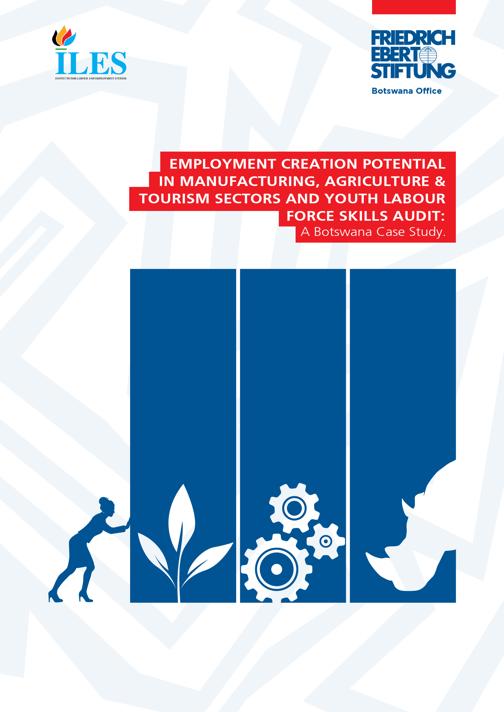Publikationen der StiftungEmployment creation potential in manufacturing, agriculture & tourism sectors and youth labour force skills audit Titel
Titelaufnahme
- TitelEmployment creation potential in manufacturing, agriculture & tourism sectors and youth labour force skills audit : a Botswana case study
- Körperschaft
- Erschienen
- Umfang1 Online-Ressource (iii, 33 Seiten) : Diagramme
- SpracheEnglisch
- DokumenttypDruckschrift
- Schlagwörter
- Geografika
- URN
- Das Dokument ist frei verfügbar
- Nachweis
- Archiv
This study aims to provide an empirical analysis of employment creation potential in manufacturing, agriculture & tourism sectors in Botswana. Furthermore, an investigation of the potential for growth and youth employment by these sectors through a skills audit to establish a skills gaps, skills requirements and an estimate inclusive future growth that drives youth labour force participation. Data from Statistics Botswana, Quarterly Multi-Topic Survey Reports and Quarterly Domestic Product Reports were used to establish trends in the occupational distribution of sectors and current employment growth rate trends in Botswana. The employment potential was quantified and sectoral employment elasticity for growth and varying estimates calculated from labour intensive sectors. To understand the in-depth supply and demand side of the youth labour market and establish skills gaps, primary data was collected using findings from the interview surveys administered to the target population; youth labour force and labour intensive firms; manufacturing, agriculture and tourism. The results from the study are consistent to other studies previously conducted and they revealed that, manufacturing, agriculture and tourism sectors mostly favour low skilled employment, which are not formally obtained but mostly learnt on the job. This attributes to the surplus youth skilled labour force that has acquired tertiary education training in the country. The policy implications for Botswana to achieve a sustainable supply and demand of youth labour force, is to institute incorporate a demand-led approach to the attainment of qualifications by youth and that requires collaboration between employers and educational institutions. Additionally, the education system needs to be designed appropriately with education policies and programs that encourage job skills development. The firms in these sectors should provide input regarding their skill requirements in order for the youth to obtain qualifications required by these labour intensive sectors. The recommendations from the study is that the Botswana Government must focus its economic transformation into labour-intensive industries to increase the absorptive capacity of the labour market.
